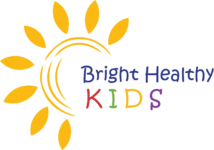Many people, including children, suffer from seasonal allergies, also known as hay fever. Seasonal allergies are typically worse in the spring and fall when certain pollens and other outdoor allergens like molds are more common. In the spring, tree, grass and weed pollens are very high and are the main culprits responsible for the spring allergy season in Georgia.
The symptoms of allergies in children are often the typical allergy symptoms seen in adults: runny, itchy nose, nasal congestion, post-nasal drip, itchy eyes, sneezing, ear-popping or fullness. Children may have other symptoms as well, including fatigue, poor sleep, snoring, irritability, throat clearing, or cough. Untreated allergies in children can lead to sinus and ear infections and attention problems at school. Children with asthma often have a worsening of their asthma during allergy season. Sometimes children with seasonal allergies go untreated due to misdiagnosis or lack of diagnosis when allergies are not recognized as the cause of their symptoms.
One of the ways to treat seasonal allergies is to avoid the agents causing the allergy symptoms. In the spring, the pollen count is highest during the early to mid-morning, so children with allergies should try to stay indoors during that time. Be sure air filters in the house are clean and keep the windows closed. Mold spores are highest when it is wet outside and are particularly high around wet leaves and brush, so children with allergies should avoid these as much as possible. All children, especially those with allergies or asthma, should avoid any exposure to tobacco smoke.
There are a number of effective medications for children with allergies. These include decongestants, antihistamines, and nasal steroids. Decongestants work by reducing swelling and mucous production in the nose. There are two decongestants on the market, pseudoephedrine and phenylephrine, both of which work the same and are available over-the-counter. Children should not use decongestant nasal sprays or drops for allergies, since these can be used only for two or three days and allergy season is much longer.
Antihistamines and similar drugs work by blocking chemicals in the body responsible for allergy symptoms, including histamine. Many antihistamines, including diphenhydramine (Benadryl), cause drowsiness. One non-sedating antihistamine, loratadine, is available over-the-counter as Claritin, Alavert, Dimetapp ND and other brands. Zyrtec (cetirizine) is also now available without a prescription. Prescription antihistamines such as Allegra are often quite effective; many insurance plans do not cover these since loratadine and cetirizine became available without a prescription. There is also one nasal antihistamine, Astelin, available by prescription. There are several over-the-counter nasal sprays containing the drug cromolyn that work similarly to antihistamines. Singulair, a prescription asthma medication, is also now approved for allergy treatment; it works by blocking a different chemical than histamine.
Nasal steroids work directly on the nasal tissue to reduce swelling and the allergic response to allergens. They are often very effective at treating the nasal allergy symptoms and sometimes help with the other symptoms as well. These are prescription medications; brand names include Nasonex, Flonase, and Rhinocort. Sometimes allergists treat allergies with allergy shots; these can be effective in some cases, particularly with ragweed allergy.
Allergy medications should be taken every day to be most effective; it is best to start them a week or so before allergy season even begins. Some children require a combination of medications to treat their allergies effectively; in most cases, symptoms can be reduced or eliminated. If your child suffers from seasonal allergies, start treatment early and eliminate those annoying and sometimes serious allergy symptoms.

